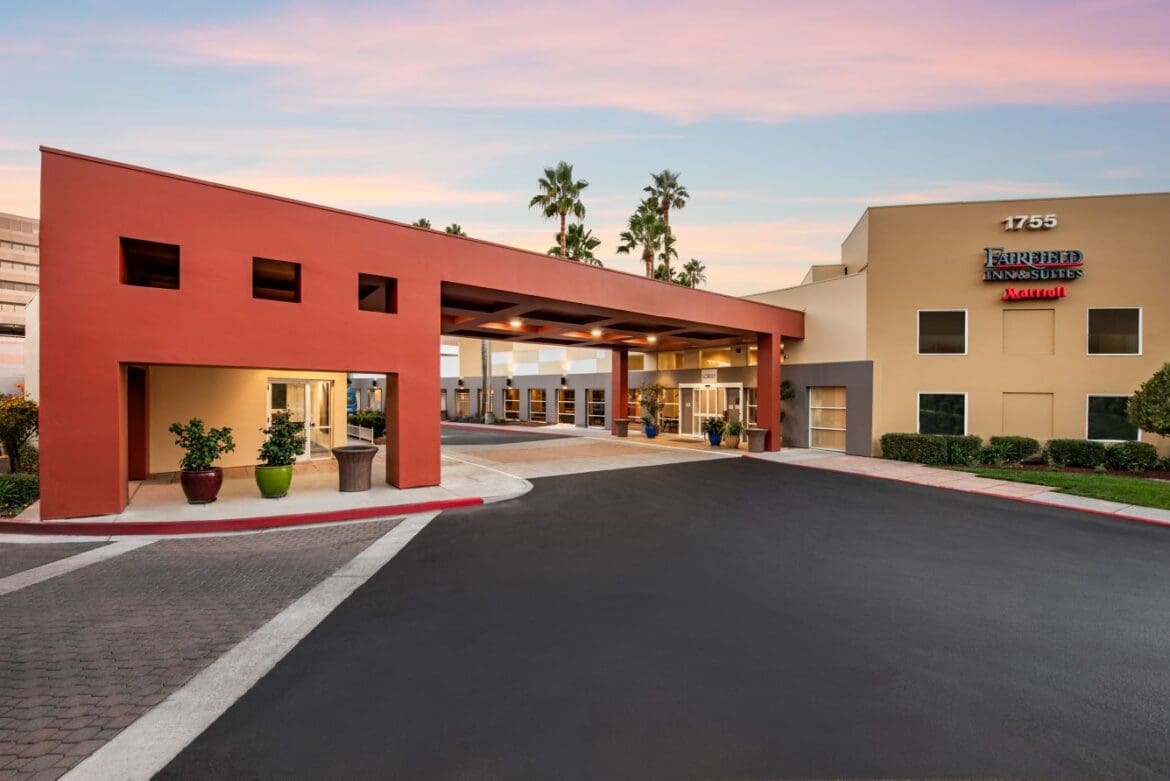Advertiser & Editorial Disclosure: The Bulkhead Seat earns an affiliate commission for anyone approved through the links below. This compensation may impact how and where links appear on this site. We work to provide the best publicly available offers to our readers. We frequently update them, but this site does not include all available offers. Opinions, reviews, analyses & recommendations are the author’s alone, and have not been reviewed, endorsed, or approved by any of these entities.
What began as a family trip to celebrate a milestone turned into an unimaginable tragedy when 72-year-old US Marine Corps veteran Terence Johnson died after being severely scalded in a hotel shower at the Fairfield by Marriott Inn & Suites San Jose International Airport.
On May 22nd, Johnson made the six-hour drive from Los Angeles to San Jose with his family to attend his granddaughter’s graduation from San Jose State University. Upon checking into the Fairfield by Marriott Inn & Suites San Jose Airport, Johnson decided to take a shower to relax after the long journey. Moments later, the family’s celebration turned to horror.
According to a lawsuit filed in Santa Clara County Superior Court, Johnson was exposed to dangerously high water temperatures (reportedly reaching 134 to 136 degrees Fahrenheit). If correct, these were well above California’s legal limit of 120 degrees. The extreme temperature caused catastrophic burns that led to his tragic death.
KTLA5 reports that court documents state that Johnson’s family became alarmed when he failed to respond after entering the bathroom. His grandson eventually went to check on him and found the veteran unresponsive and partially submerged in scalding water so hot that family members were unable to pull him out immediately.
Emergency responders later confirmed that Johnson had suffered third-degree burns covering more than 33% of his body. The Santa Clara County medical examiner determined that the cause of death was severe thermal injury resulting from scalding.
The lawsuit accuses Fairfield by Marriott and the hotel’s management company of gross negligence. It alleges that the water heater system was improperly maintained and failed to comply with California safety and plumbing codes.
The suit claims that the excessive water temperature posed a lethal risk to guests and should have been detected and corrected through routine safety checks. The family’s attorney described the incident as a preventable tragedy, emphasizing that Johnson’s death was the result of a failure to ensure basic guest safety.
The tragic incident raises questions about hotel safety standards and compliance with state regulations governing water temperature controls. According to California law, showers and tubs in commercial establishments are required to have anti-scald devices to prevent water temperatures from exceeding 120 degrees Fahrenheit. If proven, the allegations suggest a serious breach of these safety standards, potentially exposing the hotel and its operators to significant liability.
Anthony’s Take: This is so sad. As the lawsuit proceeds, the case underscores the importance of rigorous safety inspections and maintenance protocols, which are basic measures that could mean the difference between a safe stay and a fatal oversight.
(Featured Image Credit: Marriott.)
(H/T: Travel Update.)
User Generated Content Disclosure: The Bulkhead Seat encourages constructive discussions, comments, and questions. Responses are not provided by or commissioned by any bank advertisers. These responses have not been reviewed, approved, or endorsed by the bank advertiser. It is not the responsibility of the bank advertiser to respond to comments.
Advertiser & Editorial Disclosure: The Bulkhead Seat earns an affiliate commission for anyone approved through the links above This compensation may impact how and where links appear on this site. We work to provide the best publicly available offers to our readers. We frequently update them, but this site does not include all available offers. Opinions, reviews, analyses & recommendations are the author’s alone, and have not been reviewed, endorsed, or approved by any of these entities.
